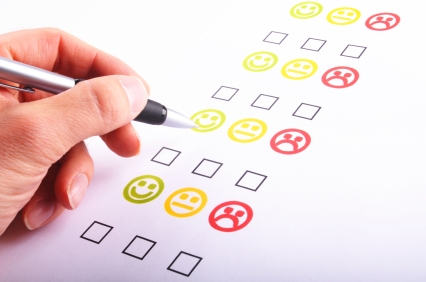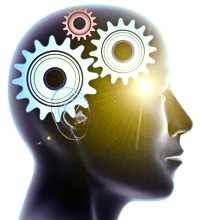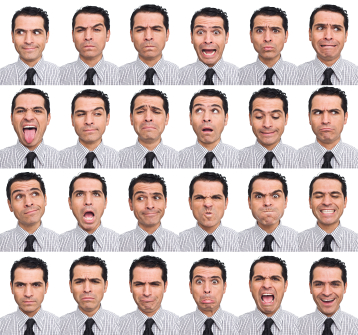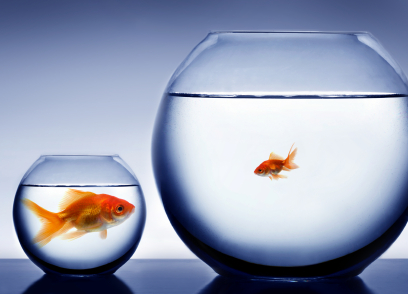


Are you having fun doing what you are doing? Too often folks associate “fun” with “lightweight” or "not earnest." We even throw around the word “serious” as if it is a compliment, as in, “She has a serious job.”
There are certainly times when humor and/or a lighthearted approach simply don’t feel appropriate, but my sense is that there are a lot of folks who are suffering from, well, a serious need of lightening up a bit. We need to make a habit of looking for more fun in our days—asking how we can “make it more fun,” or at least feel better in more life situations—especially at work. After all, are we more productive and of the most value to others when we are “grinding,” or when we are in in the midst of inspired action?
Certainly neuroscience supports this argument! In fact, this entry is an expansion on my comment responses to colleague, Jesse Lynn Stoner’s excellent post on rewiring your brain for leadership. Jesse’s advice includes guiding our thoughts toward the pleasant and the positive, especially during periods of high-demand on our personal resources.
This blog is focused on self-leadership, so let’s expand on our personal mental models of what is fun. My idea of fun includes inner life fun, and “inspired action” fun. A partial list…

Why All Choices are Emotional
Any belief we take on, or any logic we follow, we do so because on some level, we believe it will bring us closer to feeling better about ourselves and our reality, or it helps us defend against losing what level of comfort we already have.Read More...
Steve is a middle manager and a programmer who’s in his mid-thirties. He is in my Be Your Own Coach workshop, and I’ve asked him to write down his top ten “wants” in thirty-seconds.
Like most of the others in the workshop on this day, he doesn’t make it past three desires listed in the time allotted. I tell the workshop that this is evidence that not one of them is thinking about what they really want often enough, or they’d have successfully listed more than 10 desires each, given the same amount of time.
Steve agrees: “I realize that I haven’t thought about what I really wanted in years!” he reveals to the rest of the workshop.
I ask Steve to pick one of his desires from the list. He picks some training he wants his employer to provide him. I ask him why he wants it. He tells me that it will give him the certification he needs to get a promotion, and it will keep his skills current.
I ask Steve what that would mean to him. I ask him how that would make him feel. He disregards the feeling question, and answers logically (as I expect him to, because he is a Jungian “thinker&rdquo, “I am more likely to get a promotion and a raise with this training,” he says.
“How does that feel?” I persist.
“I would feel more confident leading my direct reports, and plus… well, I just realized something about my personality: I love to learn. I love knowledge! I’d feel great just learning new stuff!”
“So, if you had to sum it up” I continue, “How would this additional confidence, and the process of learning new stuff make you feel?”

Transforming Limiting Beliefs.
This last weekend, I facilitated a mini-workshop on transforming limiting beliefs at the ATMA center in West Hartford, Connecticut. Why was this workshop important? Why would anyone participate in such a workshop?
Imagine that you have a superpower that at the flip of a switch, allows you to change how you perceive yourself, others, and your life. Imagine that by using this power, you could improve work performance, enhance relationships, and enhance your health. That by using this extraordinary gift, you could unlock possibilities and potentials that were formerly hidden from you.
Well, that’s exactly how changing out a limiting belief can work. To see how your current beliefs are working for you, just look around. Your beliefs are operating around-the-clock, and they’re bringing you whatever is aligned with them… and not necessarily what you want.
Clearly, knowing how to recognize and transform limiting beliefs is a very real superpower.
But what is a belief? And what is a “limiting belief?”


Since comparing ourselves to others is so often a happiness killer, and since comparing ourselves to others takes energy away from achieving our own desires, I am devoting this blog installment to this favorite past-time of overachievers, and the chronically unhappy—and most of the rest of us.
First, I’m going to call out comparison game, then provide an alternative approach for those of us who would like to dare not to compare, and enjoy ourselves and others free from this zero-sum distraction from true happiness.
